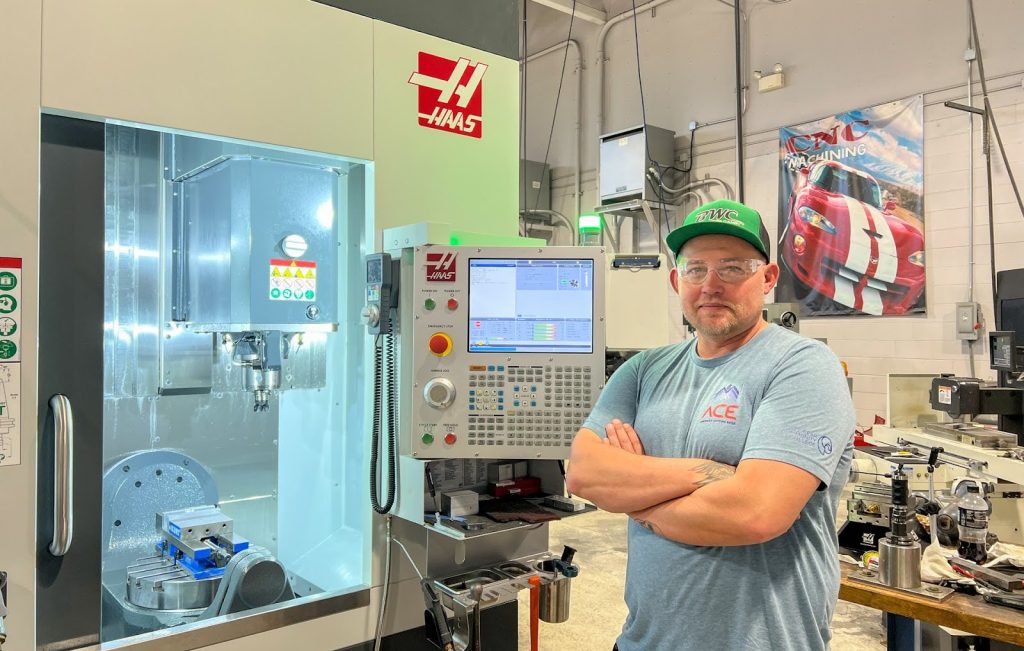Marines to Machining: Meet Robert Clements

After 17 years in the Marine Corps, Robert Clements is pursuing a new manufacturing career through Cape Fear Community College’s Computer Integrated Machining program.
Robert’s military career as a combat engineer took him to Iraq, Afghanistan, and Southeast Asia.
“As combat engineers, we built structures, created obstacles, and worked with demolitions. It was all about precision and attention to detail,” Robert shared.
These skills and the Marine Corps’ emphasis on discipline have contributed to Robert’s massive success in the machining program. “I feel like getting into American manufacturing is a great way to continue to serve my country after active duty,” he said.
Following his retirement from the military in 2018, Robert took some time off during the pandemic and worked for a local fish and tackle company. This experience sparked an interest in manufacturing, which led him to CFCC’s machining program. “I found the program online, applied, and here I am,” he said.
The transition to college life was a challenge, but Robert quickly adapted.
“As you get older, you get set in your ways, so learning something new can be difficult. But once I started, everything fell into place.”
Robert credits all his instructors for helping him tackle these challenges and excel in the program.
“In machining, every calculation matters – whether it’s working with fractions of an inch, angles, or precise measurements. One of my instructors, Nick Blair, is a math wizard and CNC expert. He’s taught me how to break down complex problems and solve them step by step.”
CFCC’s Interim Department Chair of Advanced Manufacturing, Eddie Sholar, has also supported Robert by connecting him with incredible opportunities like the ACE training program. Robert is one of two instructors for the ACE training program, a free 40-hour course that introduces participants to machining.
“It’s great to share what I’ve learned and see others excited about this field,” he said.
One of Robert’s favorite parts of machining is creating tangible products.
“The most satisfying part is making something you can hold in your hands. You’re not just writing papers or sending emails. I recently made a two-piece threaded project, and everything lined up perfectly.”
The program has allowed Robert to engage with industry leaders, including visits from companies like GE.
“GE has come to talk to us right outside the classroom, and we’ve toured their factory. It’s great to hear directly from employers about what they’re looking for and how we can succeed,” he said.
Looking ahead, Robert will graduate this upcoming May, and he is excited about his prospects in the manufacturing field. He is particularly interested in aerospace or medical equipment.

